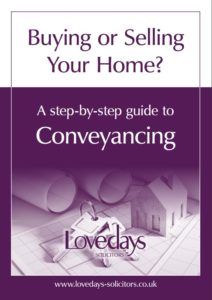- You & Your Family
- Your Job
- Family Law
- Divorce and Separation
- Finances on Divorce
- Dissolution of Civil Partnership
- Separation
- Cohabitation Agreements
- Finances on Breakdown of Cohabitation Relationship
- Prenuptial Agreements
- Grandparents' Rights
- Step-Parents' Rights
- Child Maintenance
- Parental Responsibility
- Paternity Disputes
- Buying Property Jointly
- Probate
- Wills
- Your Property
- Conveyancing
- Partnerships
- Disputes
- Boundary Disputes
- Dealing with Rent Arrears
- Japanese Knotweed Claims
- Landlord and Tenant Disputes
- Landlord Harassment & Illegal Eviction
- Negligence Claims Against Builders & Developers
- New Build Property Disputes
- Noisy Neighbour Disputes
- Personal Debt Collection
- Property Misrepresentations Claims
- Rights of Way Disputes
- Section 21 No Fault Evictions
- TOLOTA Claims
- Tree & Hedge Neighbour Disputes
- Your Business
- About Us
Property Dispute Solicitors
Buying a property can be one of the most stressful things you will do, but there is a massive sense of relief once you get the keys. However, if you later discover a problem with the property that was not disclosed during the process of the purchase, then you may be entitled to bring a property misrepresentation claim.
{quote}
The Legal Framework: What Constitutes Property Misrepresentation?
What is Property Misrepresentation?
Property misrepresentation is deemed to have occurred if a buyer has been lied to or misled during the purchase of a property if this was something that led to the purchase being successful. It is therefore necessary to prove what was said, written or implied.
If it has been found that the property has problems in its structure, for example, that was not identified, then the claim could be brought against the surveyor rather than the seller.
How Does the Law Work?
There is a responsibility on the buyer of a property to perform all of the necessary searches and checks before they make their purchase. This means that it is not possible for a buyer to reverse the sale or ask for money back if a problem has been found after the purchase.
It is also important to remember that the buyer’s solicitor needs to ensure that all necessary searches have been fully completed and it is also the responsibility of the seller to disclose all information about a property in a full and honest manner. A claim can be brought if important information comes to light after a purchase that should have been disclosed earlier.
The Duty of the Seller
Seller's Responsibility & Caveat Emptor
When selling a property, it is the responsibility of the seller to disclose all information about any possible title defects of which they are aware. This could include, for example, any restrictions on the land or property or rights over the land enjoyed by other people, and the buyer should be made aware of these before the purchase is made.
However, the buyer also has their own responsibilities during the sale, and Caveat Emptor refers to the idea of ‘buyer beware’. It means that the buyer must complete their own due diligence to ensure that they have carried out all of the relevant searches and checks and taken the time to understand the results of those and the implications that they may have.
What Sellers Must Disclose
When selling a property, there are certain pieces of information that must legally be disclosed. This can include flooding issues, structural concerns, nearby development proposals and any planned flight paths. They should make the buyer aware of any pest problems, cases of Japanese Knotweed, incidents of antisocial behaviour, local burglaries, any violent death which has occurred in the property and any sales which have fallen through.
{quote}
Types of Misrepresentation
Fraudulent Misrepresentation
Fraudulent misrepresentation is deemed to have occurred if there has been an intentional attempt to misrepresent a fact which would then convince a buyer to go ahead with the purchase. Any statement which is knowingly false could be considered to be fraudulent misrepresentation.
Innocent Misrepresentation
In cases of innocent misrepresentation, the seller will have provided information which they believe to be true but is not.
Reckless Misrepresentation
Reckless misrepresentation occurs when a seller makes a claim or statement without caring or checking whether it is accurate or not.
The Role of Property Information Forms
TA6 Forms and Pre-Contract Enquiries
A TA6 form covers important information about the sale of a property, including the compliance with any building and planning applications and the supply of services to the property. It also asks about flooding, any common parts of the property that are shared with neighbours and any information relating to Japanese Knotweed and septic tanks. This is designed to help the buyers make informed decisions about their offer and purchase.
What Happens When a Seller Lies?
When a seller is found to have lied during the sale of a property, the buyer has the right to take legal action. The buyer will be able to bring a claim against the seller, which can involve instructing a new valuation to take place. This can be compared with the amount paid to help determine how much compensation should be paid.
{quote}
Bringing a Claim for Misrepresentation
Steps to Take
In order to make a claim of property misrepresentation, you should speak to an experienced solicitor about the situation. It will first be necessary to identify what the problem is and to prove that the seller was aware of it. This will involve gathering all of the information that was provided prior to the purchase and gathering any evidence that will prove the buyer was aware of the problem. The solicitor will then be able to take your claim to court for a judge to decide on the award.
Evidence Required
Evidence of a property misrepresentation claim could include the TA6 form that they completed where they had the opportunity to make full disclosures. You may be able to obtain evidence from neighbours or the local authority that the seller was aware of any issues before the sale went through.
The Role of Surveyors & Professional Negligence
When to Blame the Surveyor
Sometimes, the blame for a case of misrepresentation might lie with the surveyor rather than a seller. It is their duty to carry out necessary checks on a property, so if anything is missed that should have been picked up, either deliberately or otherwise, then a claim can be brought against them as professional negligence.
How to Proceed with a Negligence Claim
A buyer has a maximum of 6 years from the date the incident occurred to bring a claim of professional negligence against a surveyor, or 3 years from the date that the buyer became aware of it. It is then important to contact a solicitor who will be able to assess your circumstances and help you to bring a claim.
Financial Implications
Compensation and Damages
The compensation that can be offered as a result of a property misrepresentation claim can be large. Depending on the information that was withheld, claims could be made which total tens or even hundreds of thousands of pounds, and can be in excess of 50% of the value of the property.
The Impact on Property Value
An incident of property misrepresentation can have an impact on the value of a property. Whether it is a defect within the property, a restriction or a development nearby, it can all have the potential to lower the value. It is this value that the buyer should have originally paid if the truth had been told at the time.
How Lovedays Solicitors Can Help
Property misrepresentation claims are important, as they can be the difference between what was paid for a property and what should have been paid. As this is often the case of a deliberate effort to withhold or mislead, it means that legal action can be taken to redress the balance.
At Lovedays Solicitors, we work hard to represent you and provide a thorough and transparent claims service, ensuring that you receive fair compensation for any claims of property misrepresentation. Our dedicated team are experts in their field and will provide a reliable and friendly service at all times.
{quote}
As a buyer, it is your responsibility to check the condition of a property before you buy it. The seller is required to make you aware of any serious defects, but it is up to the buyer to carry out all of the relevant checks.
A TA6 form must include as much detail as possible about the property, including its condition and anything nearby that might affect its value. Failure to fully disclose anything can be seen as misrepresentation.
A seller has the responsibility to report any issues that they have had with neighbours on their TA6 form, as it can affect the buyers decision to go ahead with the purchase.
Get Support Today
At Lovedays Solicitors, we work hard to represent you and provide a thorough and transparent claims service, ensuring that you receive fair compensation for any claims of property misrepresentation. Our dedicated team are experts in their field and will provide a reliable and friendly service at all times.

Free Guide
If you don’t know your leasehold from your freehold, then get our Free Conveyancing Guide. It contains details about the steps you will need to take with any property transactions. The Guide giving you detailed guidance on what your lawyer will be doing for you and what to look out for.


Lovedays Solicitors, Brooke-Taylors Solicitors, Potter and Co Solicitors and Andrew Macbeth Cash and Co Solicitors are the trading names of Derbyshire Legal Services Limited which is a company registered in England and Wales under company number 08838592. Registered office Sherwood House, 1 Snitterton Road, Matlock, Derbyshire, DE4 3LZ.
Authorised and Regulated by the Solicitors Regulation Authority under SRA ID number 637916.
-
01629 56660
-
This email address is being protected from spambots. You need JavaScript enabled to view it. -
Sherwood House
1 Snitterton Road
Matlock
Derbyshire
DE4 3LZ
© Copyright 2019 Derbyshire Legal Services Limited | Website by WebWorks